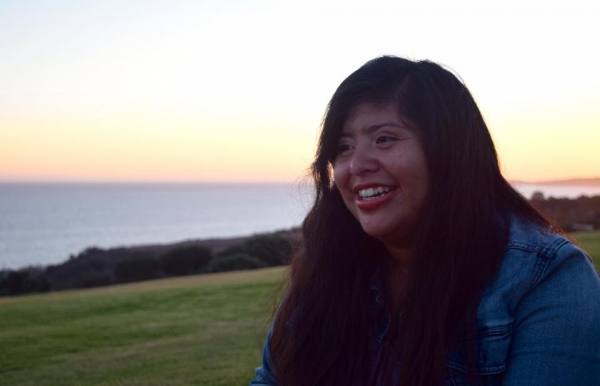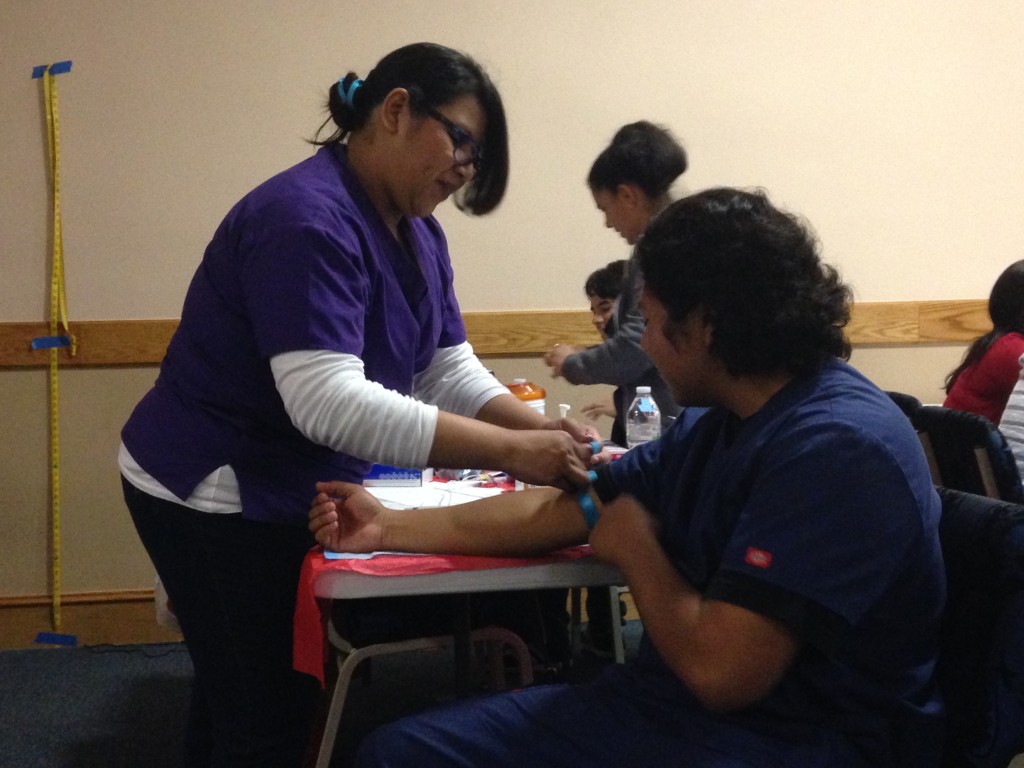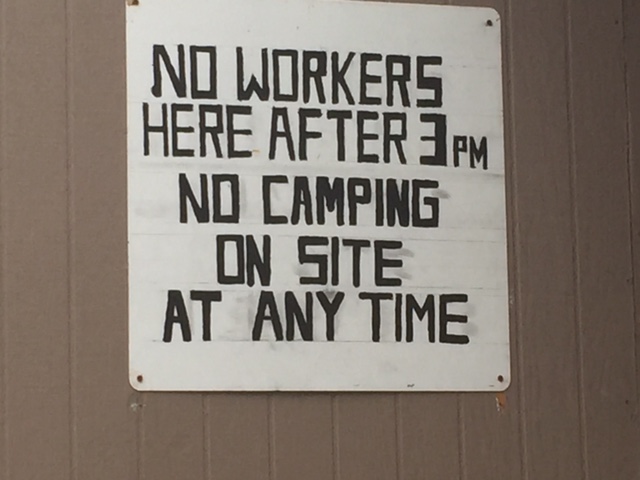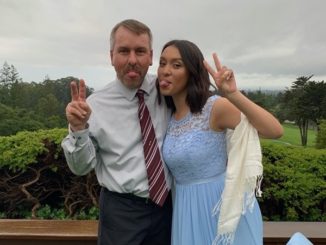
Chaotic. Unconventional. Worrisome.
These are some words that Latino and international students at Pepperdine University used to describe the 2016 presidential election.
President Donald Trump ran on a nationalistic stance that attacked immigrants and Muslims and left many feeling unwelcomed. His strong stance against immigration evoked fear for many Latino and international students.
Today, students and faculty from international and Latin backgrounds at Pepperdine are left questioning whether they belong in Trump’s America or at the university. As fears rise, the university has taken action to assure students that they are committed to protecting students and diversity. Some students have felt the election negatively impact Pepperdine, while others see no change, and some see it as an opportunity to create unity.
Growing fear and worry
“We are constantly reminded that we are not (American),” said Daniel Rodriguez, professor of Religion and Hispanic Studies. “We live in a hyphen, we live in an in-between. Trump’s America means that we will be pushed back into the hyphen.”
Identifying as Mexican-American and being one of the few Latino professors on campus, Rodriguez said he worries about the implications that Trump’s words will have on the Latino community as a whole.
He pointed to his face and acknowledged that by virtue of his skin color he was more likely to be associated with undocumented immigration.
“This anti-immigrant, anti-Mexican immigrant slant that we are seeing will affect everybody who is Latino, even if you’re not Mexican,” Rodriguez said.
Christel Jacobs, freshman psychology major and international student from Guatemala, agreed.
“Language has meaning, and I don’t think he really understands how powerful what he is saying is for us,” Jacobs said. “And not only for us, but the message he is telling the world about us (Latinos) is horrible, because people see him as a leader, and they are going to think about us like that too.”
Latino students make up 14.1 percent of the undergraduate student body at Pepperdine’s Seaver College. International students make up just shy of 11 percent. Together these two groups account for about 25 percent or 840 students at Pepperdine.
Senior psychology major Omar Sanchez said he is fearful of the rhetoric Trump evokes when speaking about undocumented immigrants. He worries that the statements Trump makes paint a horrible picture of who undocumented immigrants are.
“I have family that are undocumented, and just like knowing their personal struggle about being in America, I know the struggles they go through,” Sanchez said. “It’s very scary for me knowing that he’s president. Knowing that someone constantly says these statements about people coming into this country ‘illegally.’ I think it’s creating a lot of tension with the American people.”
We MUST have strong borders and stop illegal immigration. Without that we do not have a country. Also, Mexico is killing U.S. on trade. WIN!
— Donald J. Trump (@realDonaldTrump) June 30, 2015
National tensions at Pepperdine
Sanchez said he does not feel welcome at Pepperdine because he thinks he could never represent Pepperdine.
“I don’t feel like I can truly express myself as a Latino without there being some sort of backlash at the school,” Sanchez said. “We see how angry the responses are toward social justice and I guess an example is the Christopher Columbus statue and how angry some people were at AKB for giving in to protesters.”
Jacobs also said she does not feel welcomed as an international student at the university. Although she thinks the university tries to create spaces for Latino students, she often does not feel comfortable at Pepperdine.
Students at Pepperdine see the Trump campaign as having negative impacts across campus, having no impact on campus, or as having negative impacts that can be used as a way to bring students together.
“I definitely see a greater sense of wanting to create community, a greater sense of wanting to bond together,” said Omari Allen, political science major and Student Government Association senior class senator. “But I also have seen some divisions, I see a shift in the atmosphere.”
Freshman history major Salina Perez said she has noticed more tension on campus after the presidential election and less empathy or concern for others.
“Many people have less concern for political correctness on campus and I just feel more tension on campus,” Perez said. “Especially between those who were vocal about their political party standing.”
Trump’s strong anti-immigration stance significantly impacted Latino students on campus.
“I felt like everyone was watching me,” said Melissa Maximo, senior political science major. “I think that because I am Mexican, I feel like I stood out from the crowd, I wasn’t white so therefore everyone was looking at me and saying it’s your people who Trump is talking about. I really felt targeted after the campaign, I felt really bad.”
Political Science Professor Joel Fetzer said the election impacted many students. Some students are having trouble concentrating on their academic work and international students are questioning if they can visit their home country and safely return or whether they can continue in the United States.
Other students said they don’t think the Trump campaign has caused changes at Pepperdine.
“His political opinions are disturbing, but have not done me much harm yet,” said Yaxin Teng, a freshman psychology major and international student from Beijing, China.
Administrative response
President Andrew K. Benton said Trump’s stance against immigration impacted him.
“It impacts me because I care about students,” Benton said. “It does not impact me directly, because I feel like I know the law, and what is real and what is exaggerated, but it’s like a lot of things, I care about it because you care about it and I worry about it because you worry about it, and so it does impact me.”
Benton added that today he is unsure of where Trump stands regarding immigration. However, what he does know is that Trump’s rhetoric is incorrect.
“If I ever were talking to him about that I would say you got to think before saying things like that and you really have to check your facts, because we live in a fact-checking society,” Benton said. “So today I would just say, yes you’re the president, yes, you got a very loud bully pulpit, but you can’t say things like that.”
Benton said he hopes that Pepperdine can be a place that invites conversation from multiple points of view, one where equal voices are present. He wants students to know that they are safe at Pepperdine.
Benton addressed the issue of immigration during a town hall Feb 15. He spoke specifically about wanting to assure undocumented students that they are not alone.
“I know there may be students in this room who are DACA students who are afraid to let that be known,” Benton said. “I want to urge you to get the help that you need so that you are not alone on that issue.”
Benton also told students at the town hall that after meeting with various college and university presidents in Washington, D.C., he decided to add Pepperdine University as a signatory in an open letter sent to the secretary of Homeland Security. The letter expresses concern for the safety and protection of all students, but specifically international students.
Benton had refused to sign the letter previously citing that the action of signing the letter was more of a statement than a substantive response.
At Benton’s request, the Pepperdine School of Law also established a new Pepperdine Law Immigration Clinic to provide free legal counsel to students, faculty and staff affected by Trump’s immigration changes.
Creating unity as a solution
Moving forward, sophomore political science major Isabella Ordaz said she wishes Latino and international student will use the 2016 election as a means of creating unity. Together she and Allen have created the Beloved Community initiative with the mission to celebrate social diversity, encourage fresh conversation and create genuine inclusive community on Pepperdine’s campus.
“Students need to become more empowered and reflective in terms of thinking of ways about being locally engaged, to transform spaces into critical engagement, to resist present norms of racism, sexism and classism that often go unnoticed,” Ordaz said.
Maximo shared this outlook.
“It is unfortunate how we live in this world where it seems like the government itself doesn’t want us here, but we have to continue working hard, going to school and seeking support from other friends,” Maximo said. “At the end of the day when you have succeeded, drop that mic, and walk and just show everyone that we are not who they say we are.”
Araceli Cresencio completed this story in Jour 241 in spring 2017. Dr. Christina Littlefield supervised the web version of this story and Dr. Theresa de los Santos supervised the video package.



